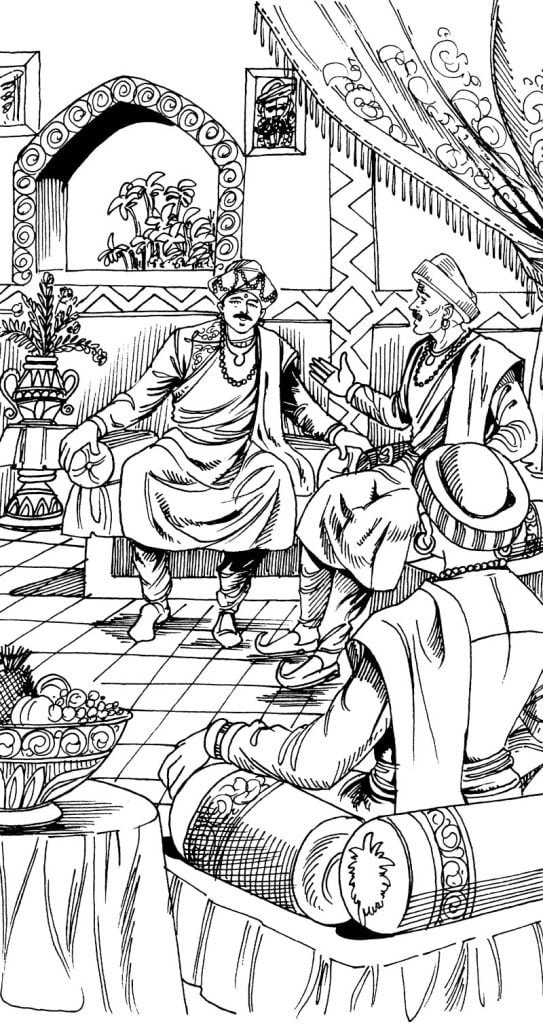When Manu was eight, her father started worrying about her marriage. On seeing her way of gaining education and the development of manly qualities, it was not a simple task to choose a boy according to her needs. Due to this Moropant was a bit more tense. Baji Rao was also worried about her marriage.
On this occasion, a famous astrologer of Jhansi Tatya Dixit came to Bithur. He has received a cordial welcome in the royal court of Baji Rao. On getting opportunity, Moropant gave the horoscope of Manu to Dixit and requested him to look a able boy for her. Tatya Dixit looked her horoscope and said—“This girl will became a Rani (Queen) in the near future.” Moropant was delighted to hear this forecast but had a little doubt on its fulfillment.
During this time, the first wife of Gangadhar Rao, the king of Jhansi, had died. Her name was Rama Bai. After the sincere efforts of Baji Rao, the marriage of Gangadhar Rao and Manu was settled. Baji Rao proposed a condition to Gangadhar Rao that Moropant had no other child and his financial condition is also not strong. Above all his second marriage in also necessary. Hence all the expenses of the marriage is to be borne by Gangadhar Rao. Gangadhar accepted the condition of Baji Rao. Thereafter, Moropant reached Jhansi along with his daughter Manu. Both were given place to stay in a Ganesh Temple. All the arrangements of the marriage were done by Gangadhar Rao. In 1842, the marriage ceremony of Gangadhar Rao and Manu took place in this temple with pomp and gaiety. This way, the Manikarinka of Varanasi and Chabilee of Bithur became the Rani Laxmibai of Jhansi.

After the marriage, Gangadhar Rao gave Moropant a house to live in and also an monthly stipend of Rs. 300/- from Jhansi’s royal treasury. According to the pre-marriage conditions Gangadhar Rao performed the marriage of Moropant with Vasudev Shivram Khanwalkar’s daughter. Her name was Chimnabai. Gangadhar Rao also appointed Moropant as Sardar in his royal court.
Due to the different nature and taste of Gangadhar Rao and Laxmibai, it cannot be said that their domestic life had a smooth sailing. Gangadhar Rao was an angry and intolerant man. A child brought-up in an open environment of Bithur was tightened into many restrictions as soon as she reached Jhansi. The women of Jhansi’s royal family cannot move openly; hence after marriage Laxmibai had to continue this tradition. She had very little freedom. She had restrictions on going outside the palace. Not only this generally she lived in an locked room and was guarded by female members. She doesn’t have even a glimpse of male persons. This way under strong restrictions and distrust she had passed her initial domestic life. But gradually Laxmibai had developed the situations according to her needs inside the palace—with by hook or by crook. She made a gym for herself inside the palace. She also made arrangements regarding the practice of shooting arms and riding on horse. Gangadhar was also greatly influenced by her talent and nobility. Soon he realised that the necessary qualities required for a successful ruler are fully present in Laxmibai.
